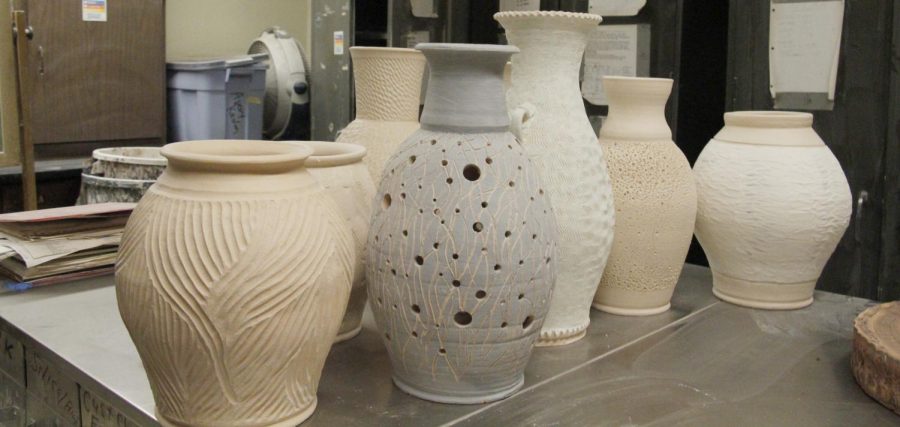More important to art than skill
Maiah Woodring/The Lion’s Roar
Excellence in a craft can require the artist’s confidence. This can extend from receiving criticism to experimentation.
There exists an unsung hero in artistry who cannot be found in a supply store or on a craftsman’s workbench.
From sculpture to theatre, this hero is expressed in every movement of the body, and the factor, confidence, distinguishes expert artists from beginners.
Elaine Gulley, a senior art major, expressed the value of being confident in one’s creative passion.
“Your confidence comes out in your craft,” stated Gulley. “You can usually tell a person that’s comfortable and confident in their craft in their mark making as opposed to someone that doesn’t feel good or doesn’t feel right about what they’re doing.”
Gulley explained the importance of having confidence in one’s artistic abilities.
“Somebody who has confidence is more free to experiment, to push the boundaries, and let their failures be something positive as to something negative,” shared Gulley.
Gulley, who began her ceramics career throwing less than 10-pound pots, has worked up to throwing 42-pound pots. She explained how she maintains confidence in her own endeavors.
“I don’t beat myself up,” said Gulley. “You have confidence. You do it. You learn from your mistakes. You don’t beat yourself up from your mistakes, and I find that a lot of people will do that. And I’m a positive person. I think positivity in a person builds confidence. If you say, ‘Aw, I did this, it looks like crap,’ immediately that lessens your level of confidence in anything.”
Dennis Sipiorski, professor of ceramics, believes it is important to learn from criticism.
“You have to be able to take criticism because sometimes when people get critical, they’re really trying to stop you from maybe going the wrong direction,” stated Sipiorski. “Teachers do that all the time. So, you have to learn how to believe in yourself.”
Each artist may react differently to criticism.
“I love criticism in my art,” shared Gulley. “I feel like most people, a lot of kids, take offense to it because they think it’s something very negative. I love it because that’s the only way I can grow as an artist. I don’t want somebody to say, ‘Oh, it’s beautiful. I like the color,’ or, ‘Oh, I like that mark.’ So, criticism is great for me. I always take away from it.”
Jeff Mickey, professor of sculpture, offered advice on how to receive criticism as an artist.
“The answer is to be persistent, improve your practice and be willing to spend the time it takes to know yourself and your work better,” explained Mickey. “It takes time and effort to become an expert at anything you choose to do seriously. If you have a passion for something, follow that passion. The work will seem less like work, and your level of satisfaction will be high.”
According to Sipiorski, desire is necessary.
“You have to have that desire, and that’s the one thing a teacher can’t give you is the desire to be confident in something,” said Sipiorski. “That comes from the person, and if the person has that desire, you can’t stop ‘em. I’ve never had anybody who’s had confidence or felt like they could do something, even if they weren’t great at it, and not succeed. So, if you can learn to believe in yourself, I think that’s what it takes.”
Your donation will support The Lion's Roar student journalists at Southeastern Louisiana University.
In addition, your contribution will allow us to cover our annual website hosting costs.
No gift is too small.





